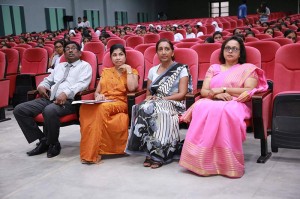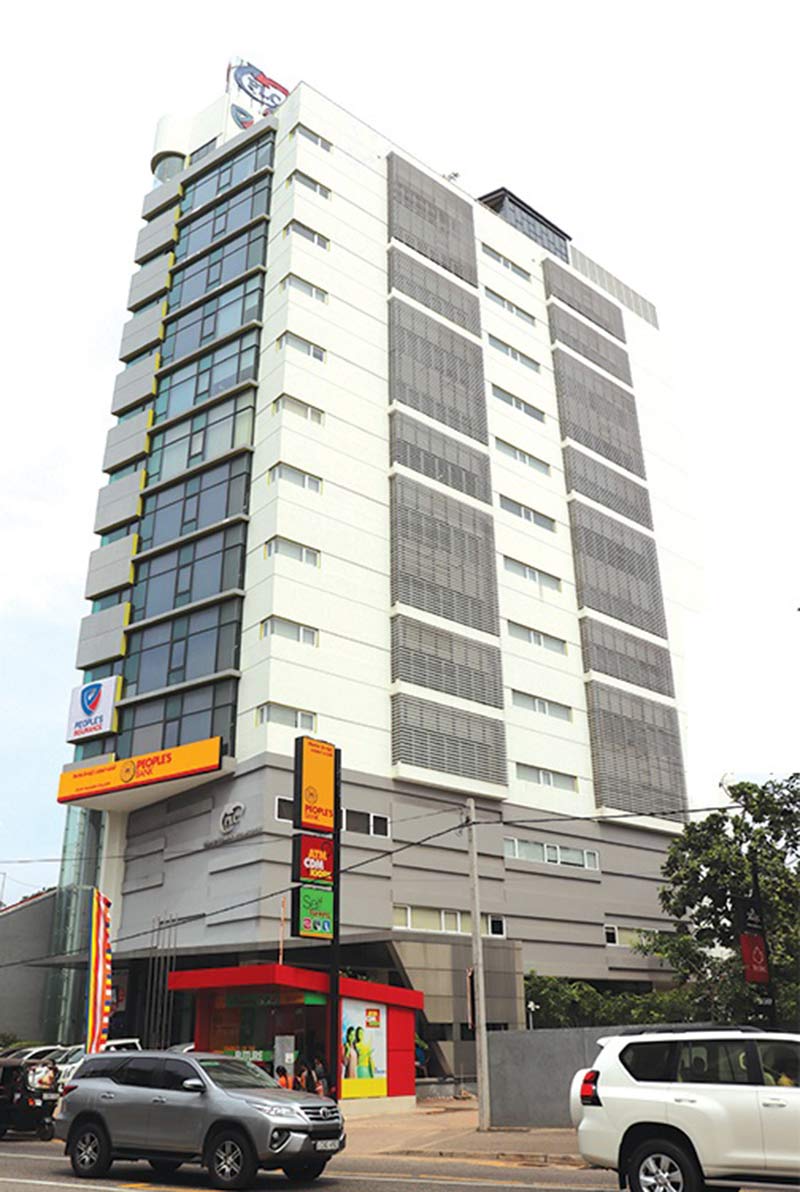
Stop Child Cruelty initiates “තහනම් වචනය දඩුවම”
(Thahanam Wachanaya Danduwama)
National Level Training on Positive Discipline Methods
End Corporal Punishment (ECP) 2020 is a campaign launched by Stop Child Cruelty (SCC) in September 2018 to end corporal punishment in Sri Lankan schools. In a context where the same message has become louder and more urgent, the organizers commenced the National Level Training Program entitled “Thahanam Wachanaya Danduwama”, which translates to “Ban the word Punishment”, in order to support teachers to become competent classroom managers by adopting alternative positive discipline methods. 400 student teachers from all around the country attended event held at the Maharagama National College of Education (Vidyapita) on the 6th March 2019. A handbook on Positive Disciplinary Methods was issued to all participants.
Dr. Tush Wickramanayaka, Chairperson, Stop Child Cruelty commented on the importance of teacher training at the event, “It is a devastating fact found through our own research from the National Child Protection Authority in 2017 that over 80% of children experience at least one episode of physical punishment and about 52% students experience at least one episode of physical abuse within the confines of the school classroom within one school term. The lack of public awareness about how the laws and regulations are not being correctly implemented in the country contributes to why we cannot move forward with banning corporal punishment in schools. It is especially important that teachers need understanding on building teacher-student relationships, improving psycho-social wellbeing and positive discipline strategies in order to end physical and verbal punishment within schools in Sri Lanka. We expect that, following this workshop, the teachers will be energized and empowered to use alternative methods which can be implemented instead of violence and establish better strategies which will move Sri Lanka towards being a healthier, zero-violence society.”
She further added, “Correcting student misbehaviors is an important yet controversial task entrusted to teachers. This is because there is a global awakening to the undisputed detrimental impact of certain methods of correcting misbehaviors. These methods are referred to as punishments and are broadly classified as corporal punishment and psychological aggression. Other than escalating to physical abuse, corporal punishment has been associated with depression, hostility and lowered academic performance. Psychological aggression has been associated with low self-esteem, self-doubt and a host of other negative consequences. Whilst 134 countries have banned corporal punishment in schools, they do encourage teachers to use positive discipline instead. It is imperative that we groom the children, the future of our country, with morals and values replicating respect and non-violence to become model citizens of the world.”
The panel of resource persons will be conducting several interactive sessions and discussing a number of essential topics within a span of two days. The resource persons include Dr. Tush Wickramanayaka – Chairperson, Stop Child Cruelty, Dr. Nilmini Hemachandra – National Professional Officer – WHO, Dr. Vinya Ariyaratne – President, Sarvodaya Shramadana Movement, Prof. Anuruddhi Edirisinghe– Professor of Forensic Medicine, University of Kelaniya, Dr. Chathuri Suraweera – Senior Lecturer in Psychiatry, Faculty of Colombo, Dr. Asiri Hewamalage – Consultant Community Physician, Prof Hemantha Senanayake, Member of University Grants Commission, Mr. Kapila Rasnayaka –Voices of Humans and Mr. Kanishka Rathnayake – Child Protection Adviser, World Vision.
The topics covered on the first day included Laws and Regulations, Ethics education, Child development and Effects of punishment and Myths and social responsibility while topics covered on the second day were self-reflection, zero tolerance on violence, relationship between love and violence and non-violence conflict resolution.
Along the short journey, the organizers have successfully concluded several initiatives. On 30th September 2018, at The ‘Walk for Real Change’ event, ECP 2020 presented a Petition signed by over 3000 committed enthusiasts who want to see Sri Lanka as a nation free from CP and The Pentagon Proposal, which has been developed giving the five overarching key components that are essential to make this a reality was presented to the President. ‘Creations for Real Change’, National Art/Poster & Poetry Competition was also held recently to spread awareness on the matter. On 24th January 2019, a media conference was held to present the Progress of Real Change, End Corporal Punishment 2020 Pentagon Proposal.
In the past, Sri Lanka had promulgated laws and issued Education Ministry Circulars to prohibit corporal punishment in schools. In 1992 Sri Lanka ratified the United Nations Convention on the Rights of the Child (UNCRC). But the problem still goes on unabated. Several victims have suffered grave physical harm and some have even been hospitalized. In February 2018 UNCRC issued a red alert to Sri Lanka for failing to ban Corporal Punishment.
The ECP 2020 Campaign is organized by Stop Child Cruelty together with the Presidential Secretariat and the Sri Lanka Foundation Institute and is supported by leading personalities as Patrons, as well as an Alliance of Professionals. The website www.stopchildcruelty.com will give details of this landmark initiative.You can connect with SCC via active FB page Stop Child Cruelty or hotline 0779497265.






